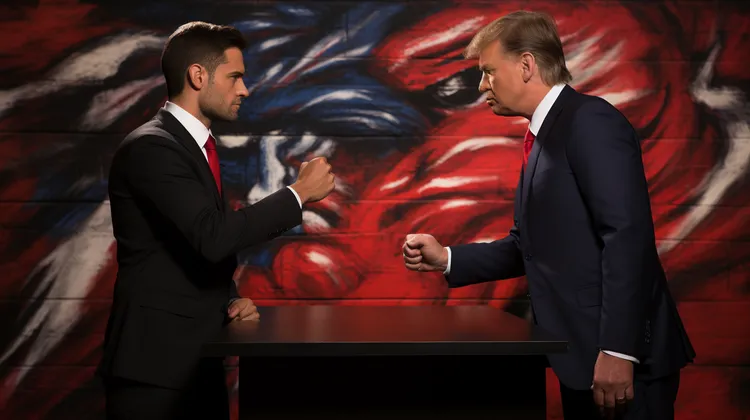The role of cryptocurrency in the American financial landscape has become a significant topic of discussion, and its emergence as a point of debate among Republican presidential hopefuls signals its growing importance in national politics. At the recent Republican Presidential Debate, candidates engaged in a spirited discussion about the future of digital currencies and blockchain technologies, underscoring the imperative to understand and integrate these modern financial tools into the broader economic framework of the United States.
In what may be a historic first, the debate stage was transformed into a platform for crypto evangelists and skeptics alike to voice their perspectives on the benefits and perils of embracing a digital currency economy. Discussions around regulatory frameworks, innovation, economic sovereignty, and national security came to the forefront, presenting a clear message – crypto is no longer a fringe topic; it has become a mainstream political issue.
Candidates sparred over how the U.S. should position itself in a world that is increasingly looking to blockchain and cryptocurrencies as alternatives to traditional banking systems. Proponents of cryptocurrency at the debate stressed the need for America to lead in the innovation and development of blockchain technology, arguing that a proactive approach would ensure the country’s competitive edge on the global stage.
Arguments were not one-sided. Some presidential hopefuls raised concerns over the volatility of cryptocurrencies, the potential for their use in illicit activities, and the challenges they pose to monetary policy and financial oversight. They called for stringent regulatory measures to protect American investors and maintain the integrity of the country’s financial system. The debate quickly became a balancing act between fostering innovation and ensuring security and stability.
In an interesting twist, there were calls from a few candidates to explore the development of a digital dollar, spurred by China’s advancements in creating a digital yuan. The concept of a Central Bank Digital Currency (CBDC) was positioned as a strategic move to ensure the U.S. dollar remains the world’s reserve currency amidst the advent of digital transformations in monetary systems.
Key to the discussion was the topic of blockchain technology as infrastructure, with candidates recognizing its potential to radically improve transparency and efficiency in various sectors including finance, logistics, and even voting systems. The transformative power of blockchain was touted as a means to reinvigorate American industries and secure data against cyber threats, with calls for investments in research and development to secure American leadership in technology.
The ideological divide was evident as some contenders saw decentralization as fundamental to personal freedom and economic empowerment, aligning with the libertarian roots of the Republican Party. Meanwhile, others maintained a cautious stance, advocating for a scenario where traditional banking systems and crypto ecosystems coexist under careful scrutiny, that protects citizens without stifling innovation.
As the debate unfolded, a surprising consensus emerged on the necessity for education and public awareness on cryptocurrency and its potential impact on the U.S. economy. Candidates acknowledged the current knowledge gap among the general population and proposed initiatives to incorporate crypto literacy into educational institutions and public programs.
Questions about foreign policy and cryptocurrency were also raised, with candidates noting how nations like Venezuela and Iran have turned to digital currencies to circumvent sanctions. The potential geopolitical implications of cryptocurrency adoption could not be ignored, and participants called for a robust strategy to curtail the misuse of these technologies by adversarial states.
The debate marked a symbolic acknowledgment of cryptocurrency’s undeniable role in shaping the future of the economic and political landscape. While candidates differed in their approaches, all seemed to agree that the question is not whether the U.S. will engage with crypto and blockchain, but how it will do so effectively and responsibly.
As the presidential race progresses, the focus on cryptocurrency is expected to intensify, with First Mover Americas and other key stakeholders closely monitoring how each candidate’s policies could shape the future of digital currency in the United States. The nuanced debate at the Republican Presidential Debate was just the beginning of a larger national conversation – a conversation that may define the next era of American innovation and economic strategy.




Investment in blockchain R&D? Yes, please! Let’s lead the way to a smarter future.
Innovation isn’t always progress. Moving to crypto could set our economy back decades if it crashes.
Digital currencies as alternatives to traditional banking? More like a recipe for disaster with these unstable coins.
It’s all about finding the right regulatory balance to let innovation flourish safely.
The coexistence of traditional banking and crypto ecosystems seems like the practical way forward.
Blockchain might be useful, but the whole crypto market is too unpredictable. Stability should be our priority!
Our financial stability is at risk here. Crypto is a playground for the rich and a trap for the average Joe.